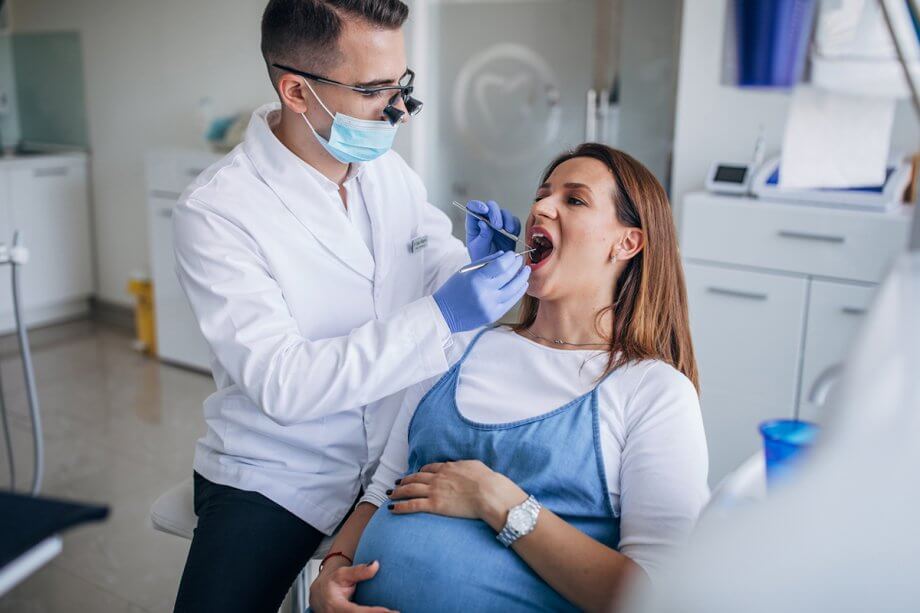It’s a common belief among expectant mothers that they should avoid getting dental work during pregnancy. This is not only untrue, but it can also be detrimental to your health and the health of your unborn child. Below, we discuss the safety of dental work during pregnancy and why it’s so important to get the care you need when you’re expecting.
Is Dental Work During Pregnancy Safe?
Will a dental cleaning release bacteria into the bloodstream? Is it possible for local anesthesia to harm a developing fetus? Are amalgam fillings toxic? There are countless questions and concerns you might have about the safety of dental work when you’re pregnant.
Both American Pregnancy Association and the American Dental Association affirm the safety of most dental treatments during pregnancy. Although deep levels of sedation and general anesthesia are not recommended for pregnant women (except in very rare cases where the benefits outweigh the risks), the local anesthesia used for common dental procedures has been studied and used extensively and has been proven to pose no danger to babies in the womb.
Many expectant mothers are concerned about dental x-rays, but these, too, are not harmful, even during pregnancy. A leaded apron will be put over your belly, and your neck will be protected with a leaded collar to shield you and your unborn child from radiation exposure. It should also be noted that today’s digital x-rays emit very low levels of radiation compared to the x-ray equipment used in the past.
Although the FDA advises against getting new amalgam (silver) fillings or having amalgam fillings removed while pregnant, any other dental procedure is safe when performed with local anesthetic. If anything, delaying dental treatment puts you at a higher risk of pregnancy complications than the procedures themselves.
Dental Concerns During Pregnancy
It’s important to see your dentist for preventive care when you’re expecting because hormonal changes during pregnancy can lead to new dental problems, including:
- Pregnancy gingivitis, which is characterized by inflammation, swelling, and tenderness of the gums. Untreated gingivitis can lead to gum disease, and gum disease has been linked to preterm birth.
- Tooth decay can be triggered by an increase of acid in the mouth, usually a result of morning sickness and indigestion. Many women also eat more carbs and sugary foods during pregnancy because these foods are easier to tolerate when nauseated, which can also increase the amount of acid and bacteria in the mouth.
- Pregnancy tumors involve swelling and inflammation between the teeth; while this is harmless, it can be uncomfortable.
We suggest scheduling an oral examination and dental cleaning during your second trimester, after any morning sickness has subsided, but before you reach the third trimester and are busy with more frequent OB/GYN appointments and getting ready for your little one’s arrival.
Learn More About Dental Work During Pregnancy
Do you have questions about the safety of dental work during pregnancy? Contact us today at 240-813-9111 to learn more or schedule a consultation.

